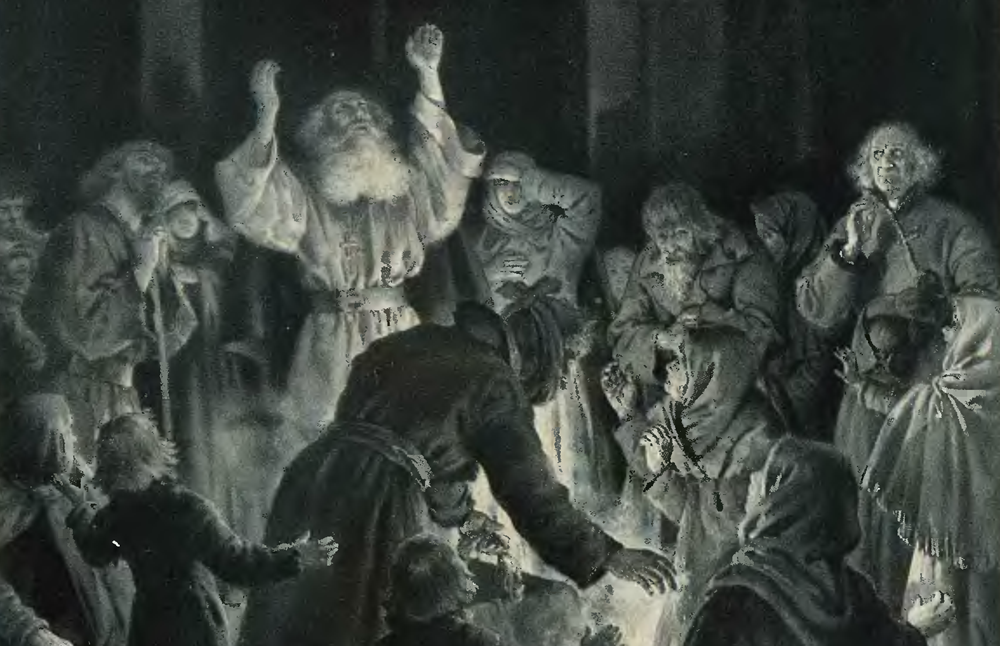Dziady (or Forefather’s Eve; written between 1823 and 1860) by bard Adam Mickiewicz is considered one of the greatest works of both European Romanticism and is one of the most important national literary works of Poland. Its newest staging at the Słowacki Theatre in Cracow became not only a top cultural event of the season but also one of the most commented political topics of the month.
Expectations were high. “Dziady anno domini 2021 will be a presentation about Poland. Keeping in mind the performances of Wyspiański, Dejmek, Świnarski, and Grzegorzewski [most important theater directors in Poland’s history – M.H.], we know that this arch-Polish drama tells about our unconscious retrotopia, about past of the undead and its undead wraith.
The community of bloody ritual and conformist salon is two faces. Poland, which Wyspiański met with ghosts at a wedding “, it was announced.
According to the director Maja Klaczewska it was “a presentation about Poland”. She added: “The one who takes to the streets to fight for basic rights, but the one who prefers to stay at home and passively observe what is happening in the world (…). Today, two Poles are our daily lives-two countries at war with each other.
Poets stand between parties fighting a fratricidal struggle. They are alone. There is no need for both sides of the Poet. As in a ghostly dream, we keep dreaming the same story, and as a human being we fail. Conservative Poland wants to suit Poets.
Close their mouths. He wants to bind their bodies, kill their Love. He wants to adapt national history, rewrite it”. And this was something the PiS activists could not stand.
The ultra-conservative superintendent of the Lesser Poland region Barbara Nowak, well known for her xenophobic and homophobic comments, did not like the new interpretation of Dziady. She twitted that she advises against organizing school trips to the show because “it’s a disgrace to use works of national poet A. Mickiewicz in the political fight between Polish anti-government opposition and Poland’s national interest”.
Minister of education Przemysław Czarnek backed Nowak and thanked her for “her reaction, as we cannot remain silent in the face of marring of beauty and desecration of art”. He also called the new staging “trash”.
What is more, it was difficult to accept for conservatives that in the Klaczewska’s version of Dziady the part of Konrad (main character) is played by a woman.
Many commentators compares – in an exaggerated way – the current critique of Dziady by PiS politicians to the famous situation from 1968. Then the communist authorities banned the performance of Dziady, directed by Kazimierz Dejmek at the National Theatre, calling it anti-Soviet.
The ban was followed by a demonstration after the final performance, which resulted in numerous police detentions. It was a part of the so called March 1968 political crisis.
So far the aftermath of the Nowak and Czarnek’s insults has been totally different from what they planned – the show is sold out, and Słowacki Theatre has added many additional spectacles to its repertoire.
This article has been published by Friedrich Naumann Foundation in the “From Poland with Love” Newsletter
Continue exploring:
PiS Chair Kaczynski Likes Chaos, But Now Got Entangled in His Own Snares



